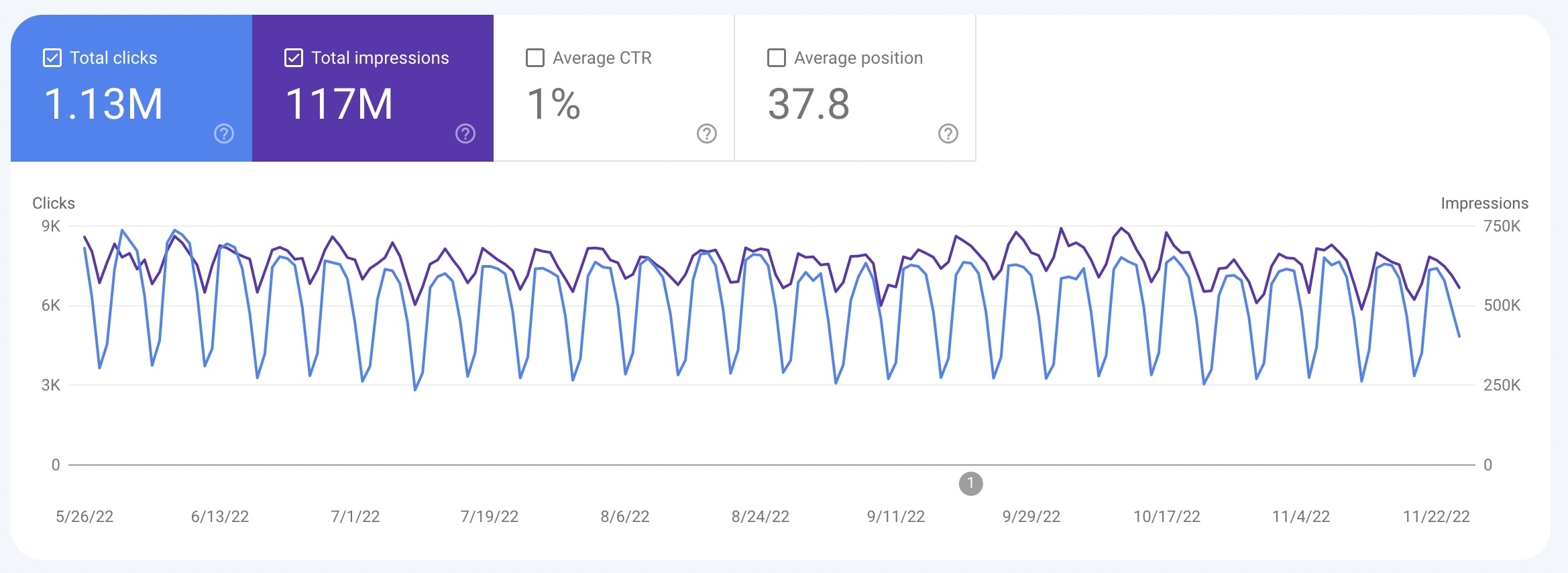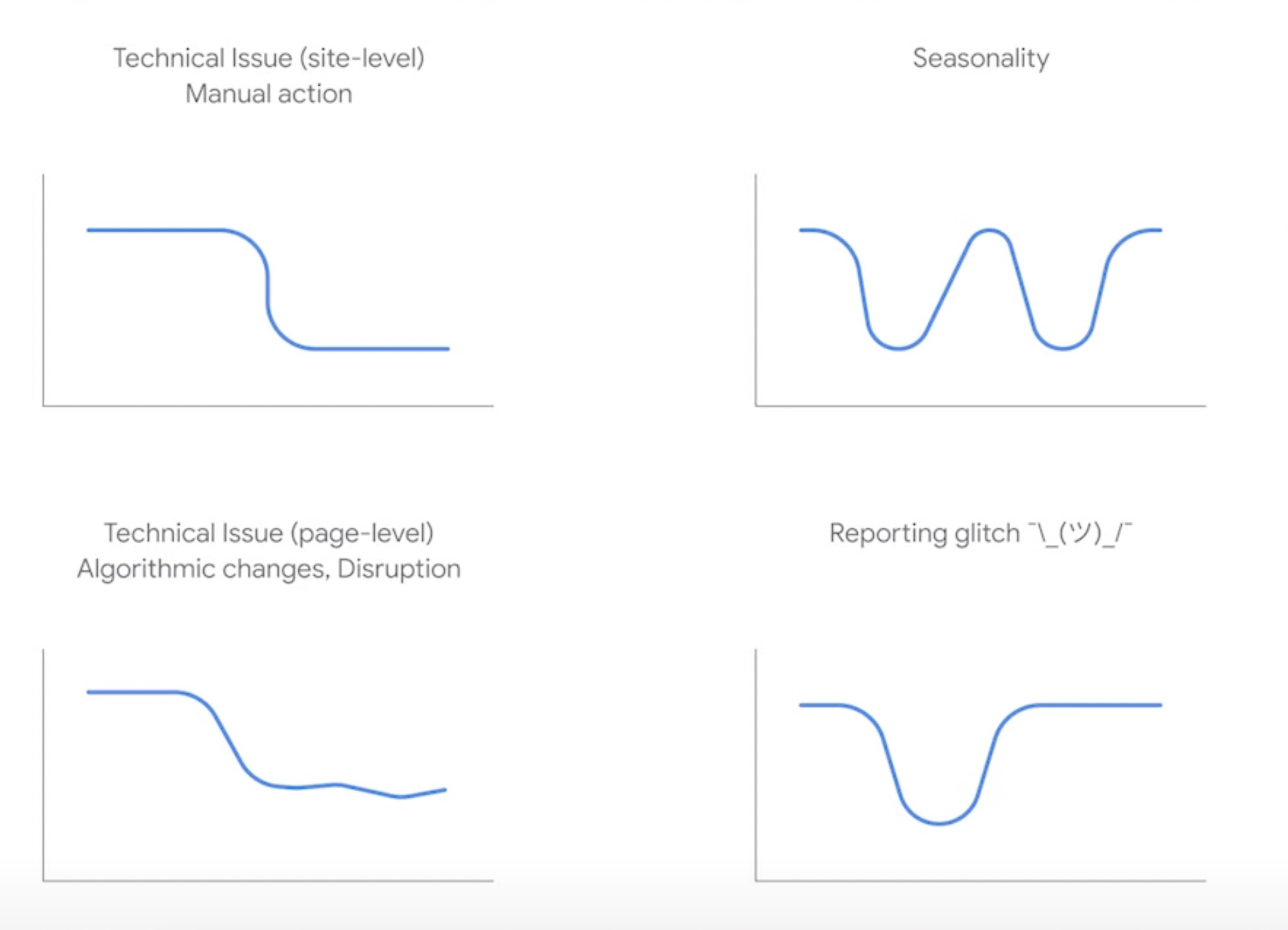Google Search Console (GSC) is a powerful tool that every SEO professional should have in their toolkit. Formerly known as Google Webmaster Tools, GSC provides a wealth of information about how your website performs in Google search results, helps you identify and fix issues that may be impacting your site's visibility, and provides valuable insights to improve your SEO efforts.

In this blog post, we will dive deep into GSC and explore 10+ essential ways SEOs use GSC and make the most out of this powerful tool.
From understanding the basic functionalities of GSC to advanced techniques for optimizing your website, these tips will help you unlock the full potential of Google Search Console for your SEO strategy.
Let's get started!
1. Monitor Your Performance
The Performance report in GSC is a goldmine of data that provides insights into how your website is performing in Google search results.
It provides information on the keywords that are driving traffic to your website, the number of impressions, clicks, average position, and click-through rate (CTR) for each keyword, and the devices and countries where your website is performing well. This data is invaluable for optimizing your content and SEO strategy.
You can filter and compare data based on various parameters, such as date, query, page, country, device, and more, to gain deeper insights into your website's performance.
Moreover, GSC is the perfect tool to analyze if your website experiences a sudden drop in traffic.
Check out this blog post on How to Analyze Traffic Drops Using Google Search Console and learn 4 different possible reasons why traffic may drop and how to correctly identify the exact reason by reading the traffic chart.

2. Identify and Fix Crawling and Indexing Issues
GSC allows you to identify and fix crawling and indexing issues that may be affecting your website's visibility in Google search results.
The Index Coverage report in GSC provides information on the status of your website's pages in Google's index, such as whether they are indexed, not indexed, blocked by robots.txt, or have other issues.
You can also use the URL Inspection tool to check the index status of individual pages, see how Google renders your pages, and identify any issues that need to be fixed.
3. Optimize Your Website for Mobile
With mobile search becoming increasingly important, optimizing your website for mobile is crucial for SEO success.
GSC provides a Mobile Usability report that identifies mobile usability issues on your website, such as viewport errors, touch elements too close, and content wider than the screen, which can impact the mobile user experience.
Fixing these issues can help improve your website's visibility and rankings in mobile search results.
4. Submit and Monitor Your Sitemap
Submitting a sitemap to GSC helps Google better understand the structure and content of your website, and can result in improved crawling and indexing. GSC provides a Sitemaps report that shows the status of your submitted sitemaps, such as how many pages are indexed, how many are excluded, and any issues with the sitemap.
You can also submit updated sitemaps to GSC whenever you make changes to your website's structure or content, and monitor their status to ensure that Google is crawling and indexing your pages correctly.
5. Monitor and Fix Structured Data Errors
Structured data is markup that helps search engines understand the content and context of your web pages.
GSC provides a Rich Results report that shows the performance of your pages with structured data in Google search results, such as how many pages are eligible for rich results, how many are displaying rich results, and any errors or warnings related to structured data.
This report helps you identify and fix any issues with structured data on your website, ensuring that Google can properly interpret and display your content in search results, which can lead to improved visibility and click-through rates.
6. Monitor and Optimize Your Website's Speed
Website speed is a critical factor for user experience and SEO. GSC provides a Core Web Vitals report that measures your website's performance based on Google's Core Web Vitals metrics, such as Largest Contentful Paint (LCP), First Input Delay (FID), and Cumulative Layout Shift (CLS).
This report helps you identify any pages on your website that have poor performance in terms of these metrics and need optimization. You can also use the PageSpeed Insights tool, which is integrated with GSC, to get detailed suggestions for improving your website's speed.
7. Analyze Your Website’s Backlink Profile
Backlinks are an important factor for SEO, as they indicate the authority and credibility of your website. GSC provides a Links report that shows the external links pointing to your website, as well as the pages on your website that are linked externally.
This report helps you analyze the quality and quantity of your backlinks, identify any potentially harmful links that may be impacting your website's rankings, and discover new link-building opportunities.
8. Monitor and Resolve Security Issues
Website security is crucial for both user experience and SEO. GSC provides a Security Issues report that alerts you if Google detects any security issues on your website, such as malware, hacking, or other security vulnerabilities.
This report helps you quickly identify and resolve any security issues, ensuring that your website is safe for users and search engines, and preventing any negative impact on your SEO efforts.
9. Use GSC for Content Optimization
GSC provides valuable data and insights that can help you optimize your website's content for better SEO performance.
For example, the Search Results report in GSC shows the pages on your website that are appearing in search results and their average position, CTR, and impressions.
This data can help you identify the pages that need improvement in terms of meta titles, meta descriptions, and content, to increase their visibility and click-through rates.
You can also use the Queries report in GSC to identify the keywords that are driving traffic to your website and optimize your content around these keywords to improve your rankings.
10. Leverage GSC for International SEO
If your website has international versions or targets different countries and languages, GSC can be a valuable tool for international SEO.
GSC provides a Country and Language report that shows the performance of your website's pages in different countries and languages, such as impressions, clicks, CTR, and average position.
This report helps you understand how your website is performing in different markets and identify any issues or opportunities for international SEO.
You can also use the International Targeting feature in GSC to specify the country and language targeting for your web pages, and ensure that your website is optimized for international search results.
11. Utilize GSC for Monitoring and Resolving Manual Actions
If your website violates Google's webmaster guidelines, it may receive a manual action penalty, which can negatively impact your rankings. GSC provides a Manual Actions report that alerts you if Google has taken any manual action against your website, and provides details about the issues and the affected pages.
This report helps you identify and resolve any violations of Google's guidelines, such as thin content, unnatural links, or spammy techniques, to lift the manual action and restore your website's rankings.
Conclusion
Google Search Console is an essential tool for SEOs that provides valuable insights, data, and functionalities to help optimize websites for improved visibility, rankings, and user experience.
From monitoring and analyzing website performance to identifying and fixing issues to optimizing content and international SEO, GSC offers a wide range of features that can greatly aid SEO efforts.
By utilizing the various reports, tools, and features in GSC, SEOs can gain valuable insights into how their website is performing in search results, identify and fix issues, optimize content, and stay compliant with Google's guidelines, leading to better rankings, increased organic traffic, and improved overall SEO performance.
